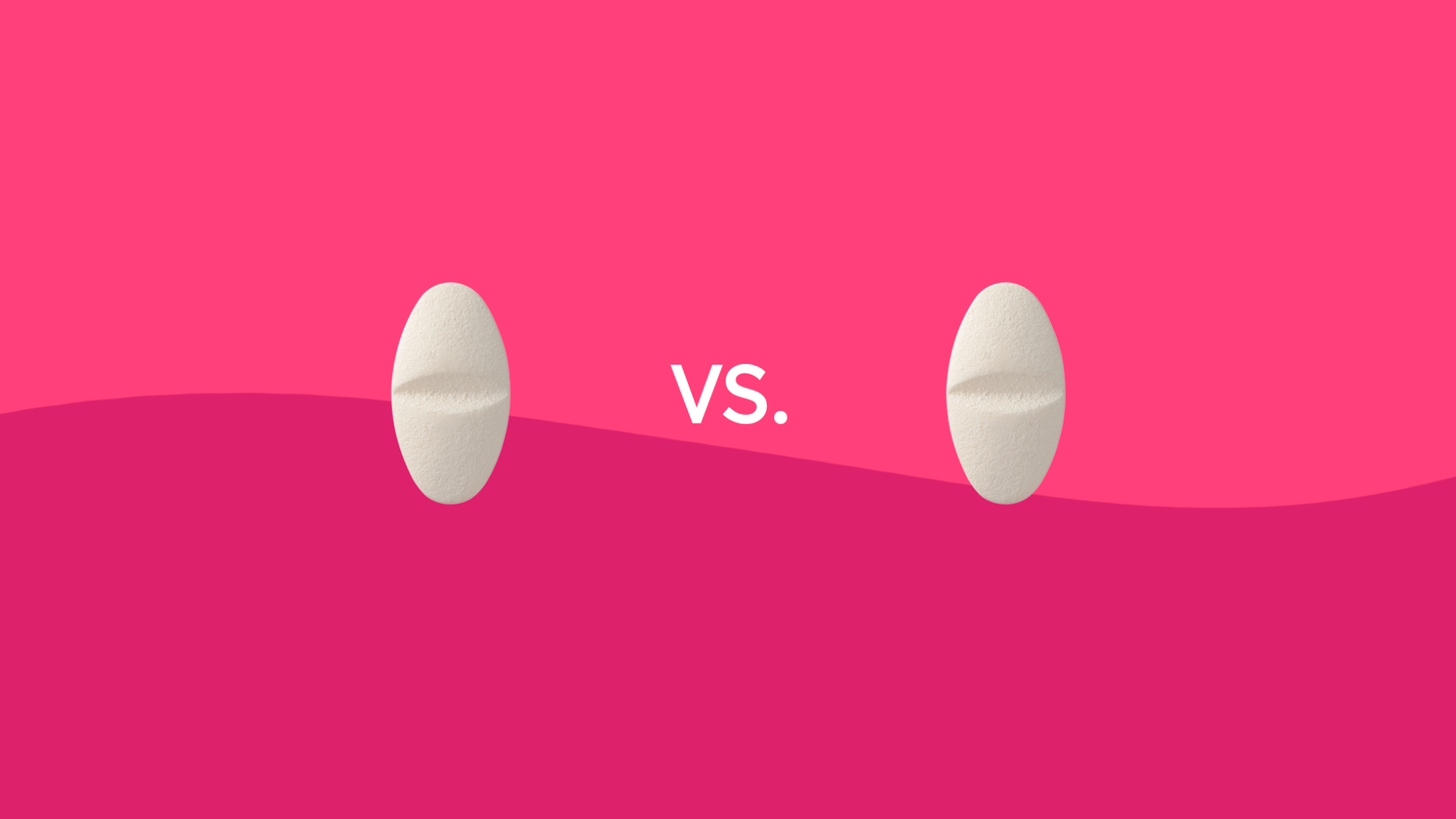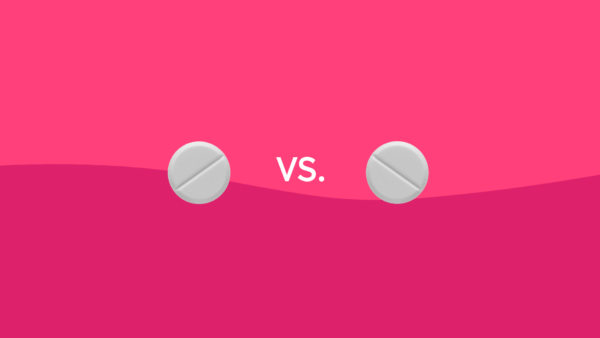Main differences between Latuda and Seroquel | Conditions treated by Latuda and Seroquel | Is Latuda or Seroquel more effective? | Coverage and cost comparison | Common side effects | Drug interactions | Warnings | FAQ
Latuda and Seroquel are two prescription drugs used in the treatment of disorders associated with mental health, primarily schizophrenia and bipolar disorder. Schizophrenia is typically diagnosed between the ages of 16 and 30 after a first episode of psychosis. Psychosis is a group of symptoms that can include trouble thinking clearly, suspicious or paranoid ideas, social withdrawal, or trouble communicating amongst others. Bipolar disorder is characterized by unusual shifts in mood, energy, activity levels, and concentration. Bipolar disorder can occur in children though it isn’t typically diagnosed until adolescent or late teen years.
Schizophrenia and bipolar disorder can be very debilitating and have a significant impact on life if left untreated. While non-drug treatment such as psychotherapy, and exercise can be very effective, many individuals will require prescription drug treatment. Latuda (lurasidone) and Seroquel (quetiapine) are two medications used in the treatment of schizophrenia, bipolar disorder, and other mental health related conditions.
What are the main differences between Latuda and Seroquel?
Latuda (lurasidone) is a prescription medication classified as an atypical antipsychotic. Latuda is indicated in the treatment of schizophrenia and depression associated with bipolar I disorder. The exact mechanism of action for Latuda is not known. Latuda is understood to reduce both positive and negative symptoms of schizophrenia through its central nervous system (CNS) action on dopamine and serotonin receptors. Latuda is available as an oral tablet in 20 mg, 40 mg, 60 mg, 80 mg, and 120 mg tablets.
Seroquel (quetiapine) is also an atypical antipsychotic prescription medication. It has been on the market longer than Latuda and is available generically. Like Latuda, it is used in the treatment of schizophrenia and bipolar disorder, but Seroquel is also approved to be used in the treatment of major depression. Seroquel is thought to work similarly to Latuda in its CNS dopaminergic and serotonergic actions. It is available in oral tablet form in both immediate-release and extended-release formulations. The immediate-release comes in strengths of 25 mg, 50 mg, 100 mg, 200 mg, 300 mg, and 400 mg. The extended-release comes in 50 mg, 150 mg, 200 mg, 300 mg, and 400 mg.
Main differences between Latuda and Seroquel |
||
|---|---|---|
| Latuda | Seroquel | |
| Drug class | Atypical antipsychotic | Atypical antipsychotic |
| Brand/generic status | Brand and generic available | Brand and generic available |
| What is the generic name? | Lurasidone | Quetiapine |
| What form(s) does the drug come in? | Oral tablet | Immediate-release and extended-release oral tablets |
| What is the standard dosage? | 40 mg once daily | 150 mg to 300 mg per day |
| How long is the typical treatment? | Long-term maintenance | Long-term maintenance |
| Who typically uses the medication? | Children >10 years old, adolescents, adults | Adults |
Conditions treated by Latuda and Seroquel
The Food and Drug Administration (FDA) approves prescription medication indications for use after extensive clinical trials. Latuda and Seroquel share indications for schizophrenia and bipolar disorder treatment. Seroquel has an additional indication to treat major depression.
Latuda and Seroquel are both also used “off-label” meaning they are used in the treatment of disorders for which the FDA has not officially granted approval. Seroquel is used off-label in the treatment of obsessive-compulsive disorder (OCD), borderline personality disorder, and in severe cases of behavioral and psychological symptoms of dementia. Latuda is also used off-label in severe cases of behavioral and psychological symptoms of dementia.
The following table outlines the most common uses for Latuda and Seroquel. Only your healthcare provider can determine if either of these drugs is right for you.
| Condition | Latuda | Seroquel |
| Schizophrenia | Yes | Yes |
| Bipolar disorder | Yes | Yes |
| Behavioral and psychological symptoms of dementia (BPSD) | Off-label | Off-label |
| Major depression (adjunct) | No | Yes |
| Major depression (monotherapy) | No | Off-label |
| Obsessive-compulsive disorder (OCD) | No | Off-label |
| Borderline personality disorder (BPD) | No | Off-label |
Is Latuda or Seroquel more effective?
It is difficult to assess head-to-head comparisons of efficacy between two atypical antipsychotics in mental health disorders. Many evaluate different parameter types. A twelve-month, double-blind study compared Latuda and Seroquel for their efficacy in preventing relapse in schizophrenia. At the twelve-month mark, Latuda was associated with higher rates of maintained remission of schizophrenia symptoms and a reduced risk of hospitalization. Seroquel was associated with higher incidences of metabolic changes and weight gain in the same period of time.
A separate systematic review compared the two drugs for efficacy and adverse events in the treatment of bipolar depression. The Montgomery-Asberg Depression Rating Scale (MADRS) was used as the key measurement for clinical efficacy. There was no statistical difference between Latuda and Seroquel with this measure. However, Latuda was associated with significantly less adverse events versus Seroquel, including weight gain and metabolic changes.
This information is not intended to be medical advice. Only your healthcare provider can determine what treatment is right for you.
Coverage and cost comparison of Latuda vs. Seroquel
Latuda is a prescription drug that is covered by most commercial and Medicare insurance plans, though copays may vary greatly with various plans. The out-of-pocket price for Latuda can be as much as $1775 for a one-month supply. With a coupon from SingleCare, you could save and pay about $1300.
Seroquel is also a prescription drug that is covered by almost all commercial and Medicare insurance plans. The cost without insurance for a one-month of supply for Seroquel is more than $250. With a SingleCare coupon, anyone can access the generic for less than $5 at participating pharmacies.
| Latuda | Seroquel | |
| Typically covered by insurance? | Yes | Yes |
| Typically covered by Medicare Part D? | Yes | Yes |
| Quantity | 30, 40 mg tablets | 30, 25 mg tablets |
| Typical Medicare copay | $29-$1300 | $10 |
| SingleCare cost | $1300-$1500 | $5-$30 |
Common side effects of Latuda vs. Seroquel
While Latuda and Seroquel are used to treat overlapping mental health disorders, their adverse event and side effect profiles differ from each other. Latuda carries a relatively low incidence of diarrhea while Seroquel is more likely to cause constipation. Seroquel is associated with small rates of increased appetite and weight gain while Latuda has no association with those adverse effects. Both drugs have been linked to somnolence, but Seroquel more so. In fact, Latuda has also been associated with insomnia. Generally speaking, Latuda has a lower incidence of adverse events as compared to Seroquel and may be better tolerated in the general population.
You should always check with your pharmacist or healthcare provider to get a complete list of adverse events.
| Latuda | Seroquel | |||
| Side Effect | Applicable? | Frequency | Applicable? | Frequency |
| Blurred vision | No | n/a | Yes | 4 |
| Dry mouth | No | n/a | Yes | 44 |
| Hypersecretion/ salivation | Yes | 1 | No | n/a |
| Constipation | No | n/a | Yes | 10 |
| Diarrhea | Yes | 5 | No | n/a |
| Fatigue | No | n/a | Yes | 10 |
| Weight gain | No | n/a | Yes | 4 |
| Increased appetite | No | n/a | Yes | 5 |
| Arthralgia | No | n/a | Yes | 3 |
| Akathisia | Yes | 11 | Yes | 4 |
| Somnolence/ sedation | Yes | 16 | Yes | 57 |
| Tremor | No | n/a | Yes | 2 |
| Extrapyramidal symptoms (EPS)/ tardive dyskinesia | No | n/a | Yes | 3 |
| Insomnia | Yes | 10 | No | n/a |
Source: Daily Med (Latuda) Daily Med (Seroquel)
Drug interactions of Latuda vs. Seroquel
Latuda and Seroquel are substrates of the enzyme CYP3A4, meaning their metabolism is dependent upon this enzyme. Other drugs which either induce or inhibit this enzyme will affect the metabolism and effects of both drugs.
Strong inhibitors of CYP3A4 such as the antifungals ketoconazole or voriconazole could increase exposure to Latuda and Seroquel. This is also the case with the antibiotic clarithromycin, commonly known as Biaxin. Concurrent use of these drugs should be avoided when at all possible.
Strong inducers of CYP3A4 will speed up the metabolism of Latuda and Seroquel and decrease their availability and therefore the effectiveness. Examples of drugs that can do this are antiepileptics such as phenytoin or carbamazepine. It is best to avoid concurrent use or make dose adjustments when necessary.
This is not meant to be a complete list of interactions. You should always check with your pharmacist or healthcare provider to get a complete list of potential drug interactions.
| Drug | Drug Class | Latuda | Seroquel |
| Hydrocodone
Oxycodone Dihydrocodeine |
Opioid agonists | Yes | Yes |
| Alfuzosin | Alpha-1 receptor antagonist | no | Yes |
| Alogliptin | Dipeptidyl peptidase-4 (DPP-4) inhibitors | Yes | Yes |
| Amiodarone | Class III antiarrhythmic | Yes | Yes |
| Azithromycin
Clarithromycin |
Macrolide antibiotics | Yes | Yes |
| Brexpiprazole
Olanzapine Aripiprazole Ziprasidone Risperidone |
Atypical antipsychotic medications | Yes | No |
| Buprenorphine | Mixed opiate agonist-antagonist | Yes | Yes |
| Diltiazem | Antihypertensive | Yes | Yes |
| Itraconazole
Ketoconazole Voriconazole |
Antifungals | Yes | Yes |
| Carbamazepine
Phenytoin |
Antiepileptic | Yes | Yes |
| Quinidine | Antimalarial drug | No | Yes |
Warnings of Latuda and Seroquel
You should avoid Latuda and Seroquel in patients with a known hypersensitivity to either drug or a drug in the atypical antipsychotic class.
Both adults and children may experience an increase in depression and suicidal thoughts while on antidepressants and antipsychotic drugs. Children and young adults seem to experience a more significant increase in depression and suicidal thoughts. This risk exists until medications have these disorders in remission. These groups should be monitored closely while on these types of medications.
Caution should be used in elderly patients, especially those with dementia-related psychosis or Alzheimer’s disease. An increased risk of cerebrovascular events such as stroke are a concern in these patients.
Neuroleptic Malignant Syndrome (NMS) is a risk of antipsychotic treatment. Symptoms include rigid muscles, altered mental status, and irregular pulse or blood pressure. While rare, it can be fatal, and patients should be monitored for signs and symptoms.
Seroquel can cause orthostatic hypotension, sometimes called syncope. This is a drop in blood pressure that can cause significant dizziness and unsteadiness upon standing. This phenomenon can increase the risk of a fall, especially in older patients.
Metabolic changes are possible side effects that have been linked to atypical antipsychotics. This can lead to hyperglycemia (high blood sugar), dyslipidemia (high cholesterol), and weight gain.
Discontinuation of any antipsychotic medication should be done under the direct supervision of your psychiatry medical provider.
Frequently asked questions about Latuda vs. Seroquel
What is Latuda?
Latuda is an atypical antipsychotic prescription medication. It has effects on both serotonin and dopamine neurotransmitter pathways. It is available in oral tablet form in various strengths.
What is Seroquel?
Seroquel is also an atypical antipsychotic prescription medication. It has effects on both serotonin and dopamine neurotransmitter pathways. It is available as oral immediate-release and extended-release tablets in various strengths.
Are Latuda and Seroquel the same?
While both Latuda and Seroquel are atypical antipsychotics, they are not the same. They have overlapping indications for use, but also have some unique indications as well.
Is Latuda or Seroquel better?
Studies show Latuda to be relatively equal to or superior to Seroquel in the treatment of mental health disorders. The choice between the two may come down to the indication it is being used for and the potential for adverse events.
Can I use Latuda or Seroquel while pregnant?
Latuda and Seroquel lack adequate, well-controlled studies in pregnant women to determine safety. Use should be limited to situations when benefit clearly outweighs risks.
Can I use Latuda or Seroquel with alcohol?
Alcohol can cause an altered mental state and impairment, and while it does not directly interact with Latuda or Seroquel, patients taking either drug should limit alcohol intake.
Can I take Latuda and Seroquel together?
Latuda and Seroquel are not designed to be used together. Your healthcare provider can help you decide which is best for you.
Does Latuda make you sleepy?
The manufacturer does report that a significant number of patients can experience somnolence on Latuda. However, insomnia is also reported.





